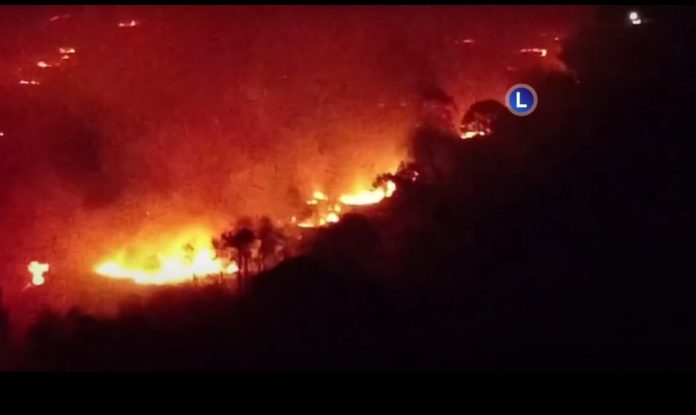Not the first or, sadly, the last:
The fire this week at Upton Heath in Poole, Dorset, has had catastrophic consequences for this precious and ecologically significant site. The blaze, which broke out late at night, has destroyed over 126 acres (51 hectares) of rare heathland, threatening the delicate balance of wildlife and habitat in the area. As crews continue to battle the remaining hotspots, the full scale of the devastation is becoming apparent.
Irreplaceable Loss of Biodiversity
Upton Heath is internationally recognised for its rare wildlife, serving as a vital sanctuary for species such as the smooth snake and sand lizard. These creatures, already struggling due to habitat loss, now face an even greater challenge as their environment is reduced to ashes. Many small mammals, birds, and invertebrates would have perished in the flames, while those that survived will struggle to find food and shelter in the scorched landscape.
Long-Term Ecological Damage
Heathland ecosystems take decades to recover from such destruction. The delicate balance of flora, including heather and gorse, provides not only a home for wildlife but also plays a crucial role in soil stability and carbon capture. Once burnt, these habitats are slow to regenerate, and invasive species can quickly take over, altering the natural biodiversity. The fire also threatens nearby woodland, which, if affected, could further exacerbate the environmental damage.
Impact on the Local Community
Beyond its ecological significance, Upton Heath is a cherished natural space for the local community. Walkers, nature enthusiasts, and conservationists regularly visit the heath, enjoying its scenic beauty and tranquillity. The destruction caused by the fire means that access may be restricted for months, if not years, as the land recovers. The emotional toll on residents who value the heath as part of their local heritage is immeasurable.
Increased Risk of Future Fires
Wildfires leave behind highly combustible debris, increasing the risk of further fires, especially during dry weather. The Dorset & Wiltshire Fire and Rescue Service had already issued an amber wildfire alert, warning of the dangers posed by dry conditions. Unless significant steps are taken to prevent further incidents, such as improved fire safety measures, increased public awareness, and careful land management, there is a real risk of repeated devastation.
Urgent Need for Conservation and Prevention
The fire at Upton Heath serves as a stark reminder of the vulnerability of our natural landscapes. Conservation efforts must now be intensified to restore the heathland and protect the remaining wildlife. Authorities and local conservation groups will need to work together to implement recovery plans, monitor the ecosystem, and prevent further destruction. The public also has a crucial role to play by adhering to fire safety guidelines, disposing of waste responsibly, and reporting any suspicious activity that could lead to further fires.
A Call to Action
Upton Heath’s fire is not just an isolated tragedy but part of a growing pattern of wildfires that threaten the UK’s heathlands. As climate change leads to drier, hotter summers, the risk of such disasters will only increase. Now is the time for action: to protect these landscapes, support conservation efforts, and ensure that future generations can continue to enjoy and appreciate the rare beauty of Upton Heath.







